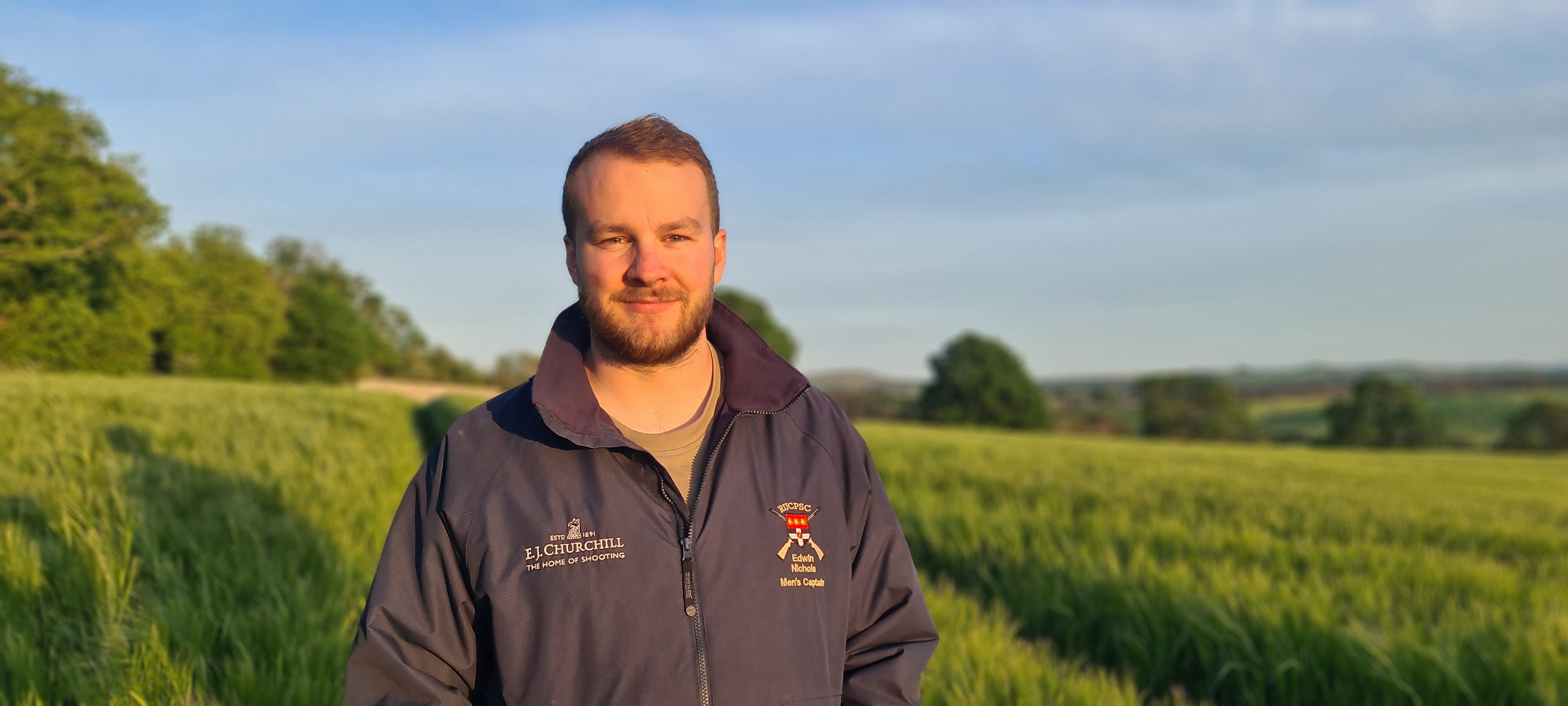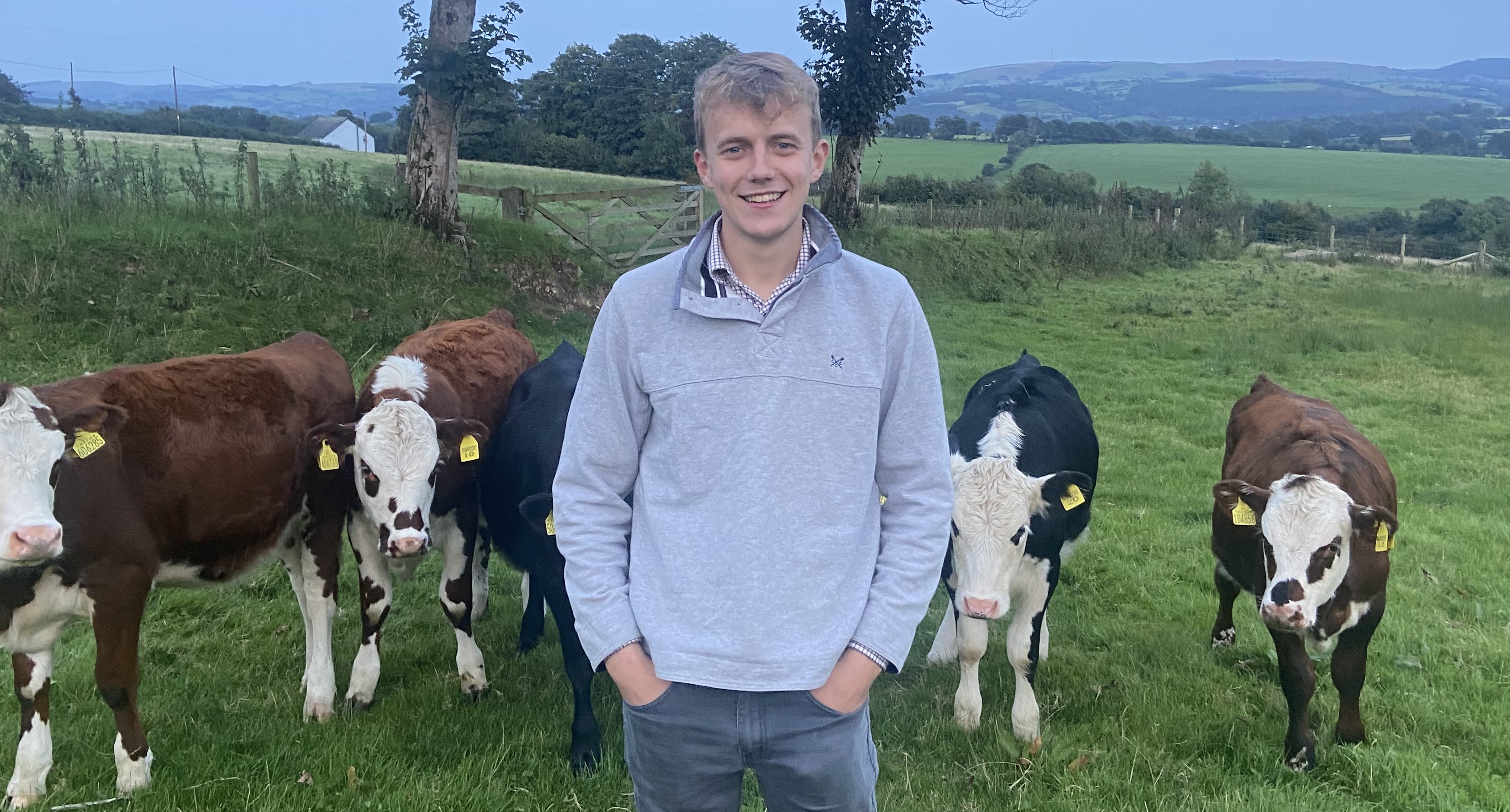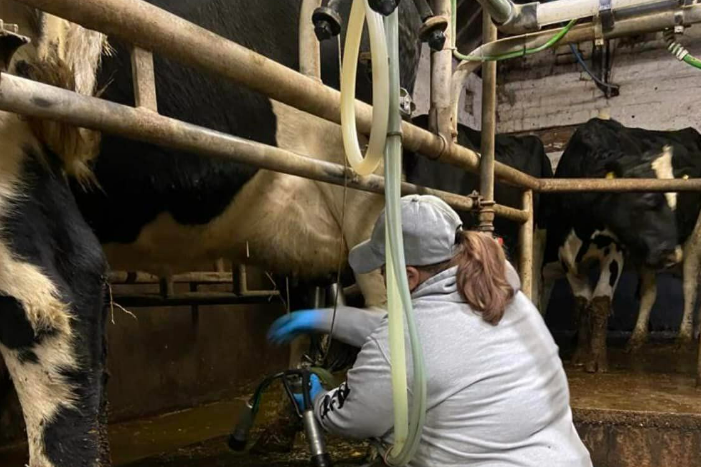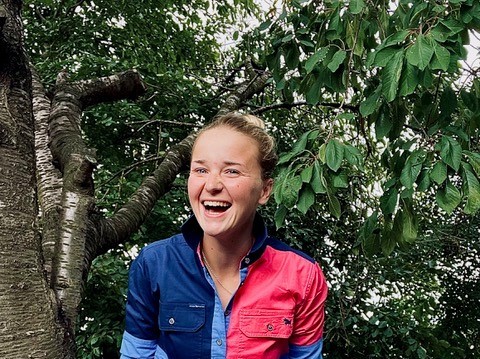

Technology can be used to help farmers and growers in several ways! Advancements allow farmers to make data-driven decisions and forecasting, ultimately leading to better practices and improved access to food products. We spoke with Edwin Nichols of Drone Ag about how he started his career with technology, his current role, and, how drones can be used the support farming activities.
What is your name, company name, and job title?
Hello, I am Edwin, the Drone Systems Lead at DroneAg. As a member of a small yet agile organisation, fulfil a range of responsibilities as necessary. Our company is located near the town of Alnwick, situated in the countryside of Northumberland.
What does Drone Ag do?
Our primary focus is centred on software development and the provision of drone systems. Additionally, we provide training on the usage of our systems for agricultural purposes, as well as for other related products in the market. Our overarching objective is to facilitate efficient and streamlined farming practices by providing software and training for drone systems. Specifically, our product offering encompasses automating crop scouting, and enhancing overall farming productivity.
What are your typical jobs on a given day?
Daily, we start our workday by addressing standard email inquiries, which may regard either sales or custom support requirements. A significant portion of our time is dedicated to manual in-house app testing. In addition, we are supporting a multitude of funded and personal projects. We have the freedom to explore varied opportunities for the implementation of technology into land-based sectors. As a team, we attempt to broaden our social media outreach, which will enable us to reach new audiences and promote our products. Finally, to ensure effective communication and coordination, we conduct daily meetings and participate in onboarding calls for training purposes.
What skills are valuable to your role?
In my job, I use different skills to help the company. Good time management is one of these skills that helps me do things on time and work better. Being able to speak confidently to groups is also important because it helps me explain things and talk with people who are interested in what the company does. This is especially important when selling because a good presentation can generate more interest in buying our products or services.
Are there any qualifications/skills/experience needed to get into your type of role?
Different jobs at the company need different things. To work in software development, you usually need to have gone to college, but for sales, it's not always necessary to know about agriculture, even though it can be helpful. I have studied agriculture and have a degree in it, which has been useful in my current job. I also keep up with new technology by taking short courses and getting certificates to fly different types of drones. Our company believes it's important to help employees learn new skills. For example, we recently hired someone who only had A-level qualifications, but they've already learned how to test apps and are now enrolled in a programming course.
Is technology important to your role?
Without a doubt, we firmly believe that technology represents the future of agriculture. As the world's population continues to grow, the need for increased food production is becoming more pressing. Naturally, there is always the possibility that some of our ideas may not succeed, but we remain steadfast in our commitment to utilising technology to maximise productivity and efficiency in agriculture.
How can this technology be used to make farming practices more productive?
Robots can work 24/7 resolving problems in the field, using knowledge from farmers to help with this and working alongside other companies collaboratively. We pride ourselves on working alongside other tech firms to accomplish industry-wide goals of technological advancement. There is new technology constantly being developed and it is a very exciting sector in which to be involved.
How can this have a positive impact on the land-based sector?
I think it will have a positive impact as it will be great to see more young people in the sector. The majority of what we see are individuals coming from ‘farming families’ so it would be nice to see others who present new ideas/views. They may have a lack of practical knowledge, but this can be learned on the job.
Is there anything unique about your product?
We are one of the very few companies that are combining automated drone imaging and artificial intelligence - we are farmers who know drones. Our app ‘Skippy Scout’ helps people make more informed decisions on their crops.
Are there busier times of the year than others?
Yes, absolutely the harvest period to drilling is quite a busy time for farmers, as well as us. The rush period starts in Spring with March and April being busy. The summer months are busy with attending trade shows to connect with new customers and other organisations in the industry.
Does your job involve a lot of travelling?
Yes, I have done quite a lot of travelling, mostly in Europe and Canada. It is one of the benefits of the job, and as there are opportunities for Drone Ag around the world, we are looking to expand further. We get to experience the tech culture of different markets on visits, as well as gain a bit of local agriculture knowledge.
What’s the best part of your job?
For me, it’s going to various trade shows, meeting new people, and working on different ideas to optimise farming operations. Most of our ideas come from our clients, and we take their advice seriously. Technology can be applied to agriculture in many ways, and this is always an exciting prospect.
Is there anything you are particularly proud of?
Yes, I was the third employee of the company when I first started. Now there is a team of twelve, and we are still expanding in Europe. I started in my role following a working placement year as an intern at the university. The pay was initially quite low, but I stayed due to seeing potential in the business and its future. It is important to realise experience can be worth much more than money - you choose to work with a company. The future is always unknown but especially with technology roles, it’s believing it will develop into something bigger and better.
Are there any challenges in your job?
Yes, the main challenge is that we are engaging with farmers in working environments, so it can be difficult for them to change their practices. If you can ensure they will be making more money and get people to understand how using drones can truly help the process, then that’s a great outcome.
How is your job supporting sustainable agriculture?
A majority of Ag tech is there to make processes greener and more efficient. Using fewer chemicals and pesticides is a clear benefit that comes with using technology to optimise operations.
If you had to convince someone else of the benefits of a career in your line of work, what would you say to them?
I would say every day is different - I have many friends who work in offices and complain they must do the same thing each day. This is one of the things you never get in technology as you are constantly trialling and testing new equipment.
What do you think the future looks like for your company?
It’s an exciting time - we are planning to expand the team this year as we have several large projects that need various expertise. We are also expanding abroad, and bringing our solutions to new markets will be a step in the right direction for Drone Ag.
Are there any future skills already identified?
That is quite difficult to say because things are constantly changing quickly. You must have the willingness to learn all the time, even if you have been in the sector for a long time. Furthermore, a belief in the future of agriculture is important. Looking forward is the best way to generate new ideas and provide solutions.
Is there anything else you’d like to add?
We are keen for young people to get involved in the industry and the best place to start is to ask around. Even on social media, be confident enough and ask if roles are available, this shows that you are keen and have a level of interest.
Ben Lewis works and runs his farm in Cwrtnewydd, near Lampeter, which was inherited through his grandfather at the age of 16. Starting his fourth year, studying BSc in Agriculture at Harper Adams University.
During his Second year of university, he gained a scholarship with The Country Land and Business Association (CLA), which was aimed at students from traditionally underrepresented areas in the rural economy. This has enabled him to travel to various locations, take part in farming conferences, visit different farms, and go to diverse events to engage.
As well as pursuing his education, Ben is passionate about continuing his grandfather’s legacy of building strong and long-lasting land. “This is the best job in the world, I like being outdoors and amongst animals so for me, farming was a no-brainer.” He went on to add: “For those who do not have their farm, talk to different kinds of people, even join a Young Farmers Club, you have nothing to lose and where you can apply for scholarships.” Ben believes this is the best time to get into farming due to the industry demands increasing.
Advanced technologies can revolutionise farming, and throughout Ben’s experience, he appreciates the need for efficient approaches. “I was given a grant for a GPS tracker to use machinery more efficiently, and an ID reader which supports me in identifying the animals quickly, especially if there are any problems”.
With so many mouths to feed and nature to restore and sustain, farming may well be the most important job on the planet. During Ben's placement year at Howard farms, in Nottingham and Carlisle, he noticed working sustainably and ‘green’ was an important factor. “The whole point of introducing livestock to Howard farms was to revitalise and fertilise the soil that had been degraded after decades of arable use.” Being financially stable was essential to, focusing on cutting down costs through implementing an 8-year crop rotation method to future-proof the land, while reducing pest and disease pressure, thus making an environmentally and financially sustainable cropping system.
Ben has ambitions to continue building his farm efficiently by conducting soil tests, and though this is a lengthy and difficult process, the benefits, and pride override anything. “Yes, it can be challenging, and maintaining a balanced home and work life takes time, still my proudest moments are going to university to study and choosing a farm that was most suited for me during my placement year, though it was not close to home”.
Feeding the planet isn’t a simple ask, it’s complex and multi-dimensional yet if you can be hands-on, open-minded, and have patience within the process of building soil strength, crop growing, and animal health, “anyone can join, because there are so many sectors in Agriculture, it’s an extremely diverse and progressing industry.”


Hattie Bryett is currently in her first year at Aberystwyth university, studying Agriculture with Animal Science. She is not a generational farmer, but someone who has a strong passion for farming and experiencing all the diverse roles.
“I’m eager to learn what this industry has to offer as I am still new and experiencing all the different roles. Since I discovered my interest within Agriculture in 2016, I have worked with horses, research cattle, sheep, and dairy and beef cattle.” Over time, Hattie has focused on genetic and artificial insemination, which she hopes to learn more about during her second year at university.
Most of Hattie’s work has been within the dairy industry where she started off on a smaller scale by milking twice a day and calving all year round. “I slowly moved onto a robotic dairy farm in Aberystwyth, where I learnt more about the benefits and deficits of the dairy industry, how robots can help, and more about calving. I would ensure the cows had gone into the robots to be milked twice daily, although majority did by themselves. Also, had to ensure all sheds were clean, checked that the robots had flagged up for mastitis (an inflammation of breast tissue) and treated them depending on their severity.”
She is now employed at a research unit with fistula ex dairy cows, whilst also being an employee at McDonalds. This gives her more opportunities to learn about produce from farming. “I have worked on the research unit since March 2023 and have really enjoyed learning what research can be done with different samples from the fistula cows.” Her experience opened an interest in research within Agriculture. “I ensure that the cow’s fistulas and paddocks are cleaned daily and resolve any problems quickly. Rotating their living space from a mix of indoor and outdoor which ensures that the welfare of animals is the best that it can be.”
Since her progression at the research unit, another opportunity arose from working for this farm, and this was to get qualified and assist in the 2023 lambing season. “This was something I had never done before, so I did find it quite challenging, yet it was incredible and made me very proud. After completing a course with ‘Embryonics’ and being awarded by ‘Lantra’, I got to lead and assist in the lambing season.” Though Hattie faced many challenges on the farm, she realised her journey expanded her knowledge for the better, and the feeling of accomplishment overrides anything.
Taking on the responsibility to drive positive change, Hattie hopes to educate and inspire others to experience farming from a different light, ensuring they have that confidence and motivation to learn about Agriculture and the benefits of farming. Hattie has the capability and drive to make a difference from the ground upwards. “Agriculture offers so many roles, so I really want to experience as many pathways as possible.”
“I’m very proud to be part of this new generation of farmers. I really hope to inspire as many young people that farming is open to everyone, particularly if you are keen to put in the hard work.”
Some may call it a double life, others may view it as living a thrilling life, yet for the world of Land-based and Environment we call it a diverse and rewarding adventure.
Splitting her time between a career as a criminal barrister and working on a family-run arable farm during the weekends, Eleanor Durdy has always had the passion to pursue both from a young age. Eleanor says she is “lucky to be born into a farming family, where my dad is a first-generation farmer, so have always had an interest in it.” She was interested in law from a young age as her grandma was a Magistrate and she grew up watching Legally Blonde. This ultimately enticed her into pursuing a legal career!
Starting off working full-time at the farm throughout school, sixth form, and university, Eleanor commenced her legal profession, reducing her farming activities to only seasonal work. After that, she went to university for her undergraduate, and master's, then completed The Bar to become a barrister. Not wanting to immediately dive into her legal career, she began working on the farm for three years until October 2020 when she started her journey as a full-time barrister.
She went on to add the importance of transferable skills, a concept used in both her career as a barrister and whilst working time on the farm. “I preach this to everyone and say to them the skills you use on a farm can be transferred to be used as a barrister. I can use my analytical skills for both when assessing and finding fair resolutions.” Eleanor has shown throughout her experiences that she is resilient, confident, and hardworking.
“Training is important - to learn from people who are already in the sector, apprenticeships are best to learn on the job.” Apprentices can train and work in a variety of aspects within the farming industry. They are broad, allowing the opportunity to develop many skills in different areas. With the right attitude, there is no loss! We either practice what we’ve gathered or understand what we need to practice.
Eleanor explains the fact that challenges can come depending on the weather as water has a crucial role in agricultural production and securing food. “When achieving success against the weather on the farm, it is the best feeling!”
She understands the importance of farmers taking some time to explore away from the farm, as it can come with quite a fair share of challenges. Nevertheless, the industry offers endless opportunities, with a range of skills development to be gained and huge satisfaction of taking long-term care of the land, green energy, and biodiversity. Securing the future of the natural environment and protecting it for future generations.
We have learned from Eleanor not to pass judgment on a career without experiencing it first! Working in farming is an opportunity to be an ecosystem engineer that feeds the nation - Making a difference from the ground upwards is something to cherish, as well as giving people the chance to experience life on a farm and to learn where our food comes from.
“Go and experience being on a farm, there is a huge misconception of how it is, yet you must try it first, shadow work is the most helpful!”
